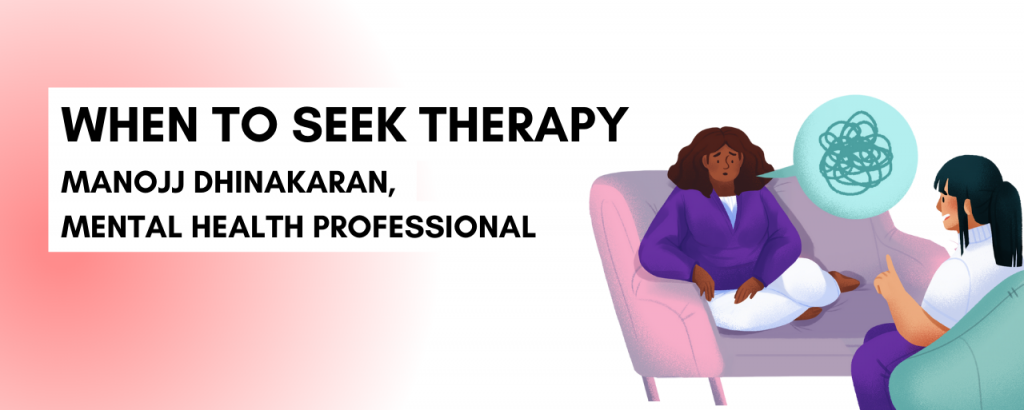The question People are often intimidated, ashamed and sometimes even disgusted to seek therapy or ask for help in turbulent times. Going for therapy is NOT an act of weakness. It is an act of valour and there is nothing wrong in that. Some may even ask if it is necessary? Well, it is an […]

People are often intimidated, ashamed and sometimes even disgusted to seek therapy or ask for help in turbulent times. Going for therapy is NOT an act of weakness. It is an act of valour and there is nothing wrong in that. Some may even ask if it is necessary? Well, it is an integral component at times, and not always.
A huge misconception about seeking therapy is that ‘you start taking one only when you have a mental disorder’. NOT necessarily. Therapy can also be just simply talking and getting a different perspective or sharing your feelings to get a professional insight when you feel completely lost and need a sense of direction. Short sessions of counselling may have profound life-changing effects on people in need of motivation.
Also – In some cases, getting an early consultation is important. Most of the problems get serious due to neglect. Some telltale signs like prolonged depression, fatigue and others may be an early warning to some deep conflicts that require resolving before it becomes serious and getting therapeutic help is the best way to stop them getting worse.
This is the biggest question that everyone has and needs to ask themselves. You don’t need to go for one immediately for every small inconvenience like feeling sad after a movie. Nor should you sit tight enduring all that pain after losing a loved one. The key lies in understanding the elements of magnitude and time.
When the emotions are too overwhelming and you feel completely hopeless or scared and every day seems more of surviving than living. When you feel that there is no purpose of living and just want to leave everything behind. Some of these thoughts disappear in a day or two, but some remain. Under those circumstances and most importantly when you have suicidal thoughts, it is better to seek help.
This is the most important factor that one needs to take into consideration along with the magnitude. If all the other mentioned factors line up to be there for a prolonged time let’s say, almost a month getting a counselling session will be beneficial.
Also – Apart from these, other factors like sudden disinterest in things that you usually like doing, traumatic experiences and using drugs or other forms of substance-abusing to cope up should also be counted in. APA suggests you ask these questions,
It takes a lot of courage to ask for help and even more to follow up on it. Don’t feel bad or ashamed. Nothing is more important than your mental health. By asking for help you have already become a warrior.
Remember, sometimes the greatest of healing can happen with the smallest of meaningful conversations.
Writer: Manojj Dhinakaran